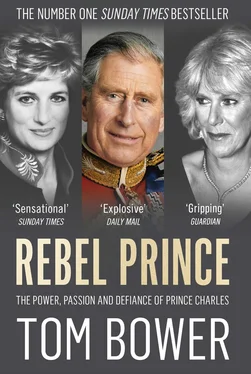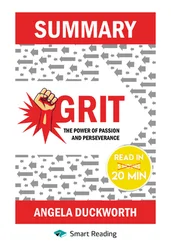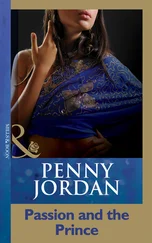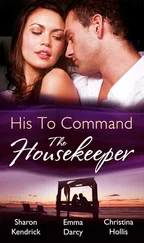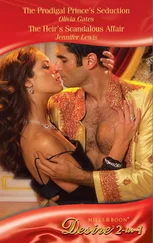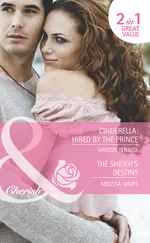‘You must deal with your media image,’ Nico Browne-Wilkinson told Charles.
Nico’s wife offered a solution. While working at the Press Complaints Commission she had met Mark Bolland, the Commission’s twenty-nine-year-old director and in his private life the partner of Guy Black, a Cambridge graduate and political adviser. Bolland, Hilary Browne-Wilkinson said, was charming and well-connected, and had good relations with London’s senior media executives. He was also an outsider. Unlike other palace officials, he had been educated at a grammar school in Middlesbrough and had gone neither to Oxbridge nor the army, but had read Chemistry at York University. His understanding of the real world made him an ideal choice to promote Camilla and secure the public’s acceptance of her relationship with Charles. Hilary was supported by Fiona Shackleton, who said Bolland should be appointed as soon as Charles’s divorce was finalised.
By the end of the evening, Charles and Camilla were half-persuaded. Both Shackleton and Hilary Browne-Wilkinson appeared relieved. Dabbling in that world, with access to the heir to the throne, was a fizzy experience for both lawyers. Charles’s reliance on such people signalled his anguish. In 1996 he was searching for scapegoats to blame for a decade of horror. Prone to grasp at any excuse, he agreed with the latest judgement of his inner circle of friends that Richard Aylard, his private secretary, was mainly responsible for his plight.
In their opinion, Aylard’s cardinal error had been to encourage Charles two years earlier to open his heart to the journalist Jonathan Dimbleby for a biography and a two-hour television documentary.
Over the previous months Aylard had spent nearly every day and many nights responding to his employer’s cries for protection from criticism, sacrificing his own private life and his marriage. To overcome Charles’s bouts of depression, he had encouraged him to cooperate with Dimbleby. When the resulting book and film proved a personal disaster, Charles refused to accept any blame for pressing Aylard to arrange the extraordinary access to his secrets.
The Dimbleby project had been born from Charles’s anger that he was being treated as a mere ribbon-cutter rather than as the heir to the throne. His status had been devalued among courtiers in Buckingham Palace and some cabinet ministers by his refusal to end his relationship with Camilla. At that time, the very notion that the couple might marry was ridiculed by a country that had lost respect for the man who had betrayed his wife Diana. Unless Camilla was ousted, the critics agreed, Charles could not remain the queen’s automatic successor. Inaction might even jeopardise the monarchy itself. The huge majority of the public reflected the homily of Walter Bagehot, Britain’s nineteenth-century constitutional expert: ‘We have come to regard the monarchy as the head of our morality.’ Charles failed that test.
His fate had been dictated by a series of humiliations, not least by Diana’s disclosures in Andrew Morton’s 1992 book Diana: Her True Story . Morton’s revelations had broken through the carapace of lies about the royal marriage. Diana had portrayed her estranged husband as an unloving and unfaithful father without a care for anyone except himself. ‘It is so very awful,’ Charles wrote to Nancy Reagan, the former president’s wife; ‘very few people would believe it.’ Through Dimbleby, Charles wanted to right the balance but also to retaliate, to have his revenge against a wrecker.
First he agreed to the queen’s insistence that he and Diana formally separate. The announcement was to be made by John Major, recently re-elected as prime minister.
A strong prime minister would not have tolerated the warfare between Charles and Diana, and would have halted the books and briefings. Instead, Major believed that his duty was to reconcile the two and restore the public’s trust. Sympathetic to Diana’s side of the case, he did not underestimate his task, particularly after a private flight when Diana had emerged from the plane’s lavatory covered in blood. There was no explanation other than that she was psychologically unwell.
Major’s intentions were obstructed by Buckingham Palace. Robert Fellowes, the queen’s private secretary, gave no clear guidance about the royal family’s attitude. Until the circumstances were compelling, Fellowes judged, the queen would remain reluctant to interfere. Her inactivity magnified the ineptitude of her advisers. ‘The trouble is that Charles is a Hanoverian,’ a senior civil servant observed, ‘and now that he’s delivered “an heir and a spare” and has done his duty to the nation, he thinks he’s entitled to live the way he wants.’ In the coded language of the official classes, he added, while Diana Spencer could trace her family’s British ancestors back to 1478, the Windsors had been invented only in 1917. Their history became irrelevant when the queen’s hand was finally forced by Diana’s secret cooperation with Morton and her untruthful denials of that pact to Fellowes.
At Charles’s request, Aylard had insisted to Major that when announcing the formal separation he should tell the House of Commons that ‘no third party’ was involved; and so on 9 December 1992 the lie was formally announced in a speech drafted by a quartet of officials: cabinet secretary Robin Butler, Robert Fellowes, Buckingham Palace’s senior spokesman Charles Anson, and Aylard.
To control the narrative, Charles expected Aylard to dictate the ‘truth’ about the separation, a divorce and the possibility of remarriage by employing the usual convenient formulas: ‘There are no plans …’ or ‘It is not the intention that …’ Silence and denial were his tactics to become king – a contested succession, as some senior bishops doubted whether an adulterer could lead the Church of England.
Aylard knew that loyalty meant suspending the conventional role of a private secretary. Unlike the queen’s supportive working relationship with Fellowes, Charles would not tolerate Aylard discussing whether muddying the facts about his relationship with Camilla was tolerable. To continue as Charles’s adviser required acceptance that the heir was infallible, divinely ordained, and that his ‘truth’ remained unchallenged. That fiction had been instilled in Charles since childhood. Reminded of the fate of Europe’s other royal families, he had learned that the House of Windsor’s survival depended upon minimising the public’s indifference, assuaging its hostility and dispelling any suggestion of insecurity.
To fulfil that ambition, Robin Butler had included in Major’s statement a second fiction. Despite their legal separation, Major would tell MPs, there were no constitutional implications; with a formal separation rather than a divorce, on Charles’s accession Diana would still be queen. Butler would later concede that his advice was wrong.
Early on the morning of his announcement, the prime minister shuttled between Diana in Kensington Palace and Charles in St James’s Palace to seal their final approval. Any satisfaction he may have felt was shredded a few hours later when his statement in the House evoked widespread derision. His suggestion of a monarchy of two separate individuals offended the British reverence for their royal family. Instead of calming the public, the speech raised speculation that Charles might abdicate.
The queen had already responded to the danger: persuaded that she had to reprimand her son, she had forbidden him to move from Kensington Palace into Clarence House, the queen mother’s home, after formally separating from Diana. The prospect of Charles entertaining Camilla in a palace shared with his grandmother, then aged ninety-two, was offensive. He had been assigned instead to St James’s Palace, a cold, comfortless dwelling.
Читать дальше
